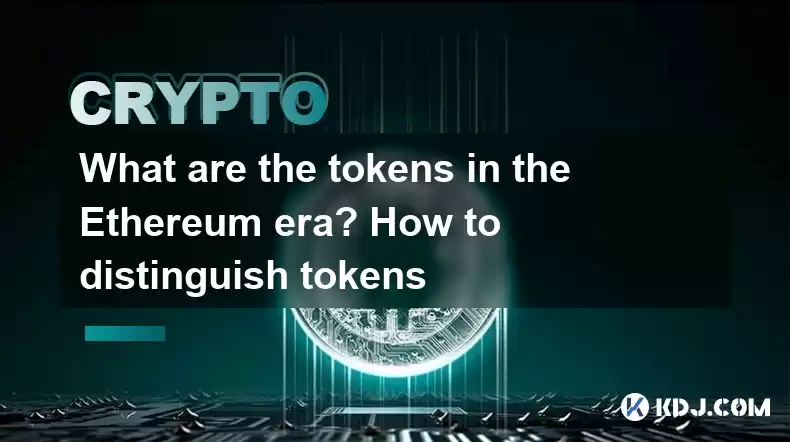-
 Bitcoin
Bitcoin $116400
-0.36% -
 Ethereum
Ethereum $4033
3.40% -
 XRP
XRP $3.302
-1.26% -
 Tether USDt
Tether USDt $1.000
-0.02% -
 BNB
BNB $796.1
1.67% -
 Solana
Solana $177.8
1.89% -
 USDC
USDC $0.9999
0.00% -
 Dogecoin
Dogecoin $0.2314
4.09% -
 TRON
TRON $0.3381
0.14% -
 Cardano
Cardano $0.7989
1.22% -
 Stellar
Stellar $0.4496
-1.84% -
 Chainlink
Chainlink $20.42
9.42% -
 Hyperliquid
Hyperliquid $41.17
0.88% -
 Sui
Sui $3.914
3.77% -
 Bitcoin Cash
Bitcoin Cash $584.7
1.52% -
 Hedera
Hedera $0.2632
-0.54% -
 Avalanche
Avalanche $24.09
3.40% -
 Ethena USDe
Ethena USDe $1.001
-0.02% -
 Litecoin
Litecoin $123.2
1.33% -
 Toncoin
Toncoin $3.318
-0.04% -
 UNUS SED LEO
UNUS SED LEO $8.984
-0.05% -
 Shiba Inu
Shiba Inu $0.00001323
2.85% -
 Uniswap
Uniswap $10.90
4.41% -
 Polkadot
Polkadot $3.999
3.34% -
 Dai
Dai $1.000
0.01% -
 Cronos
Cronos $0.1630
9.64% -
 Bitget Token
Bitget Token $4.484
0.82% -
 Monero
Monero $272.4
2.44% -
 Pepe
Pepe $0.00001173
6.03% -
 Aave
Aave $290.8
2.88%
What are the tokens in the Ethereum era? How to distinguish tokens
Tokens, built on blockchains like Ethereum, represent ownership, access to services, or governance rights, playing a pivotal role in the Ethereum ecosystem and beyond.
Feb 06, 2025 at 08:42 pm

Key Points:
- Definition and Characteristics of Tokens
- Types of Tokens: Security Tokens, Utility Tokens, and Governance Tokens
- Tokenomics and Token Models
- Case Studies of Popular Ethereum-Era Tokens
- Evaluating Tokens for Investment
- Token Risks and Regulatory Considerations
- Frequently Asked Questions
What are Tokens in the Ethereum Era?
In the realm of blockchain technology and cryptocurrencies, tokens have emerged as a pivotal concept that drives the Ethereum ecosystem. These digital assets, often built on the Ethereum blockchain, represent ownership of underlying assets, access to services, or governance rights. Tokens have revolutionized the way businesses raise capital, enhance product offerings, and foster community engagement.
Types of Tokens
- Security Tokens: Represent ownership in an underlying asset, similar to stocks or bonds. They offer investors traditional financial rights such as dividends, voting rights, and capital appreciation.
- Utility Tokens: Facilitate access to specific goods or services within a blockchain ecosystem. They grant users functionality or access to platform features.
- Governance Tokens: Provide holders with voting rights and influence over the development and decision-making of a blockchain project. They empower token owners to shape the future of the platform.
Tokenomics and Token Models
Tokenomics refers to the economic design of a token, including its token distribution, issuance schedule, and utility. Token models establish the rules and incentives for token holders within a decentralized ecosystem.
- Inflationary Tokens: Increase in supply over time, diluting the value of existing tokens.
- Deflationary Tokens: Decrease in supply over time, potentially increasing token value.
- Hybrid Tokens: Combine elements of both inflationary and deflationary models.
Case Studies of Popular Ethereum-Era Tokens
- Ethereum (ETH): The native token of the Ethereum blockchain, used for network fees, smart contract execution, and decentralized applications (dApps).
- Uniswap (UNI): A governance token for the Uniswap decentralized exchange, granting holders voting rights and a share of trading fees.
- Decentraland (MANA): A utility token for the Decentraland virtual world, used to purchase land and participate in the platform's economy.
Evaluating Tokens for Investment
- Token Utility: Assess the use cases and long-term value of the token.
- Tokenomics: Analyze the token distribution, issuance schedule, and token model.
- Project Team: Research the qualifications and experience of the project team.
- Community: Engage with the token's community to gain insights into its development and adoption.
Token Risks and Regulatory Considerations
- Volatility: Cryptocurrencies can be subject to extreme price swings, potentially resulting in financial losses.
- Fraud and Scams: The cryptocurrency market can be prone to fraudulent activities and rug pulls.
- Regulatory Uncertainty: Token regulation can vary by jurisdiction, creating uncertainty for investors.
FAQs
- What is the difference between a token and a coin?
A token is a digital asset built on a blockchain, while a coin is a native cryptocurrency of a specific blockchain. - What is a stablecoin?
A stablecoin is a token pegged to a real-world asset, such as fiat currency or commodities, to maintain price stability. - How do I store my tokens?
Tokens can be stored in non-custodial wallets, where you control the private keys, or in custodial wallets, where a third party manages the keys. - What are the benefits of tokenization?
Tokenization can enhance transparency, efficiency, and accessibility in various sectors, including finance, real estate, and supply chain management.
Disclaimer:info@kdj.com
The information provided is not trading advice. kdj.com does not assume any responsibility for any investments made based on the information provided in this article. Cryptocurrencies are highly volatile and it is highly recommended that you invest with caution after thorough research!
If you believe that the content used on this website infringes your copyright, please contact us immediately (info@kdj.com) and we will delete it promptly.
- Maxi Doge Presale: The Meme Coin That's Pumping Iron and Prices!
- 2025-08-09 19:10:11
- Rare Coin Warning: Don't Get Fooled by That 1p Coin!
- 2025-08-09 18:50:12
- Cardano, Unilabs, and Tron Price: Decoding the Latest Crypto Buzz
- 2025-08-09 18:30:12
- Aerodrome Finance: Price Targets and the Bullish Channel - What's Next?
- 2025-08-09 18:50:12
- BlackRock and the Crypto ETF Landscape: No XRP (Yet!), But What's Next?
- 2025-08-09 19:10:11
- Rare Coin Frenzy: eBay Sees 2p Coin Listed for Over £2K!
- 2025-08-09 18:55:11
Related knowledge

What is Ethereum’s Slashing mechanism and how to punish malicious behavior?
Feb 20,2025 at 03:08am
Key PointsOverview of slashingDifferent types of slashing in EthereumIncentives and consequences of slashingIdentifying and reporting slashed validato...

What is the verifier node of Ethereum and how to become a verifier?
Feb 19,2025 at 06:00pm
The Verifier Node of Ethereum: A Comprehensive GuideKey Points:What is a Verifier Node?How to Become a Verifier NodeResponsibilities and Rewards of a ...

What is Ethereum’s staking, and how to participate and earn money?
Feb 19,2025 at 04:37pm
Key Points:Understanding Ethereum's Staking MechanismSteps to Participate in StakingBenefits and Rewards of StakingSecurity and Risk ConsiderationsTec...

What is Ethereum’s DAO (Decentralized Autonomous Organization) and how does it work?
Feb 20,2025 at 03:12am
Key PointsDefinition and Structure of a DAOGovernance and Decision-Making in DAOsBenefits and Use Cases of DAOsChallenges and Limitations of DAOsWhat ...

What is Ethereum's multi-signature wallet and how to improve security?
Feb 20,2025 at 02:18pm
Key Points:Understanding the Concept of a Multi-Signature WalletBenefits and Drawbacks of Multisig WalletsRequirements for Setting Up a Multisig Walle...

What is Ethereum's oracle and how to provide data for smart contracts?
Feb 21,2025 at 01:30am
Key Points:Understanding the concept of oracles in EthereumExploring different types of oraclesDetailed guide on how to provide data for smart contrac...

What is Ethereum’s Slashing mechanism and how to punish malicious behavior?
Feb 20,2025 at 03:08am
Key PointsOverview of slashingDifferent types of slashing in EthereumIncentives and consequences of slashingIdentifying and reporting slashed validato...

What is the verifier node of Ethereum and how to become a verifier?
Feb 19,2025 at 06:00pm
The Verifier Node of Ethereum: A Comprehensive GuideKey Points:What is a Verifier Node?How to Become a Verifier NodeResponsibilities and Rewards of a ...

What is Ethereum’s staking, and how to participate and earn money?
Feb 19,2025 at 04:37pm
Key Points:Understanding Ethereum's Staking MechanismSteps to Participate in StakingBenefits and Rewards of StakingSecurity and Risk ConsiderationsTec...

What is Ethereum’s DAO (Decentralized Autonomous Organization) and how does it work?
Feb 20,2025 at 03:12am
Key PointsDefinition and Structure of a DAOGovernance and Decision-Making in DAOsBenefits and Use Cases of DAOsChallenges and Limitations of DAOsWhat ...

What is Ethereum's multi-signature wallet and how to improve security?
Feb 20,2025 at 02:18pm
Key Points:Understanding the Concept of a Multi-Signature WalletBenefits and Drawbacks of Multisig WalletsRequirements for Setting Up a Multisig Walle...

What is Ethereum's oracle and how to provide data for smart contracts?
Feb 21,2025 at 01:30am
Key Points:Understanding the concept of oracles in EthereumExploring different types of oraclesDetailed guide on how to provide data for smart contrac...
See all articles

























































































